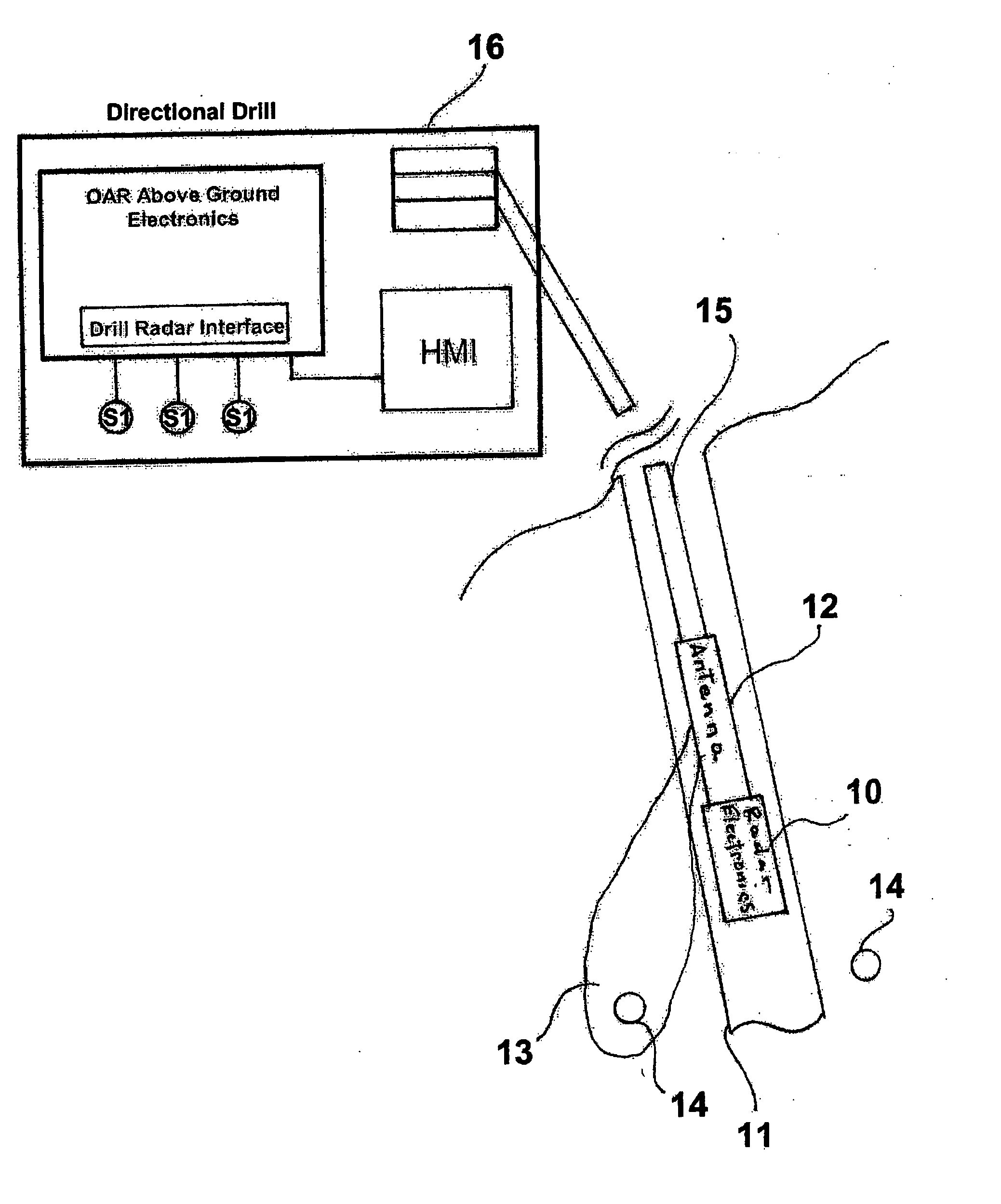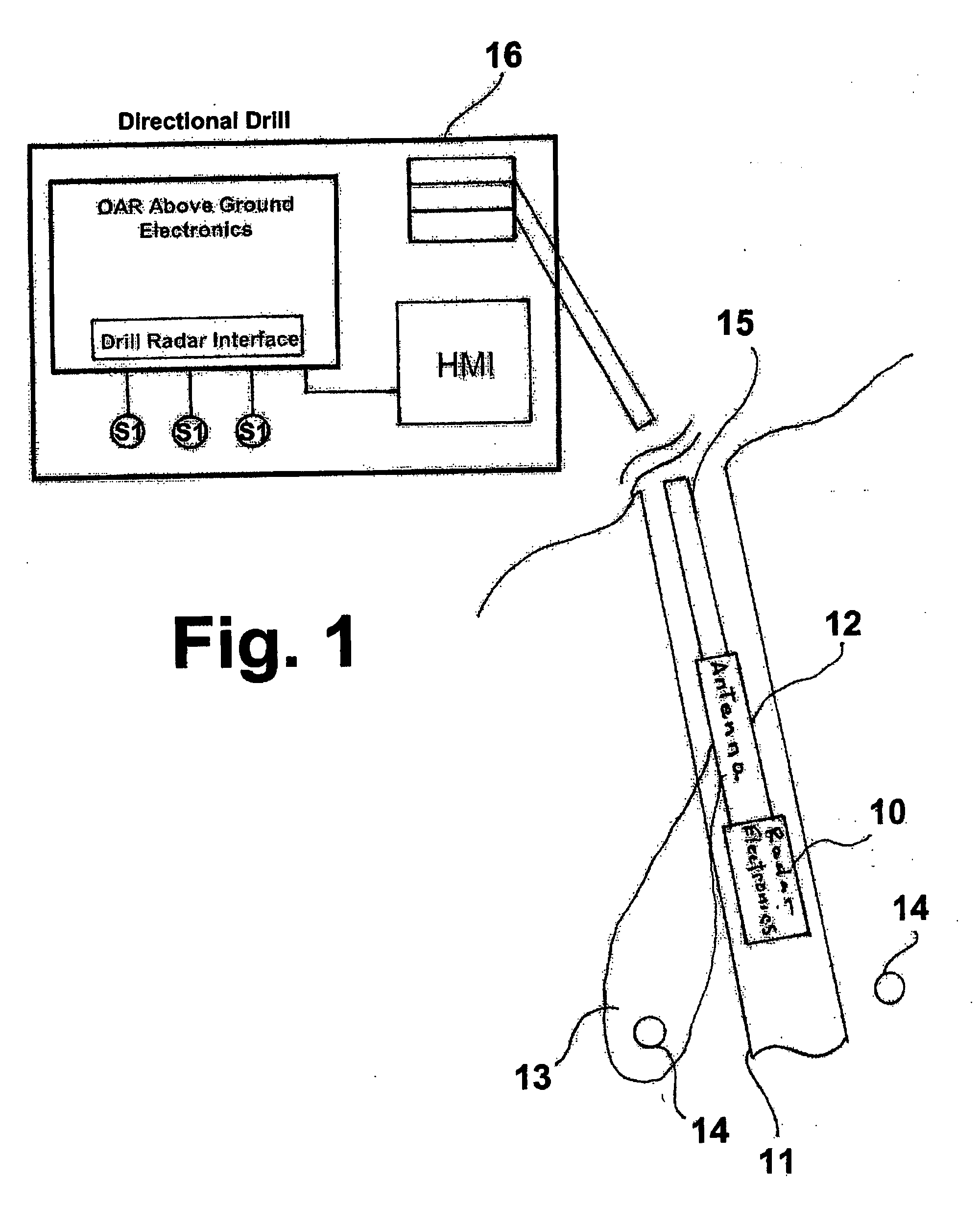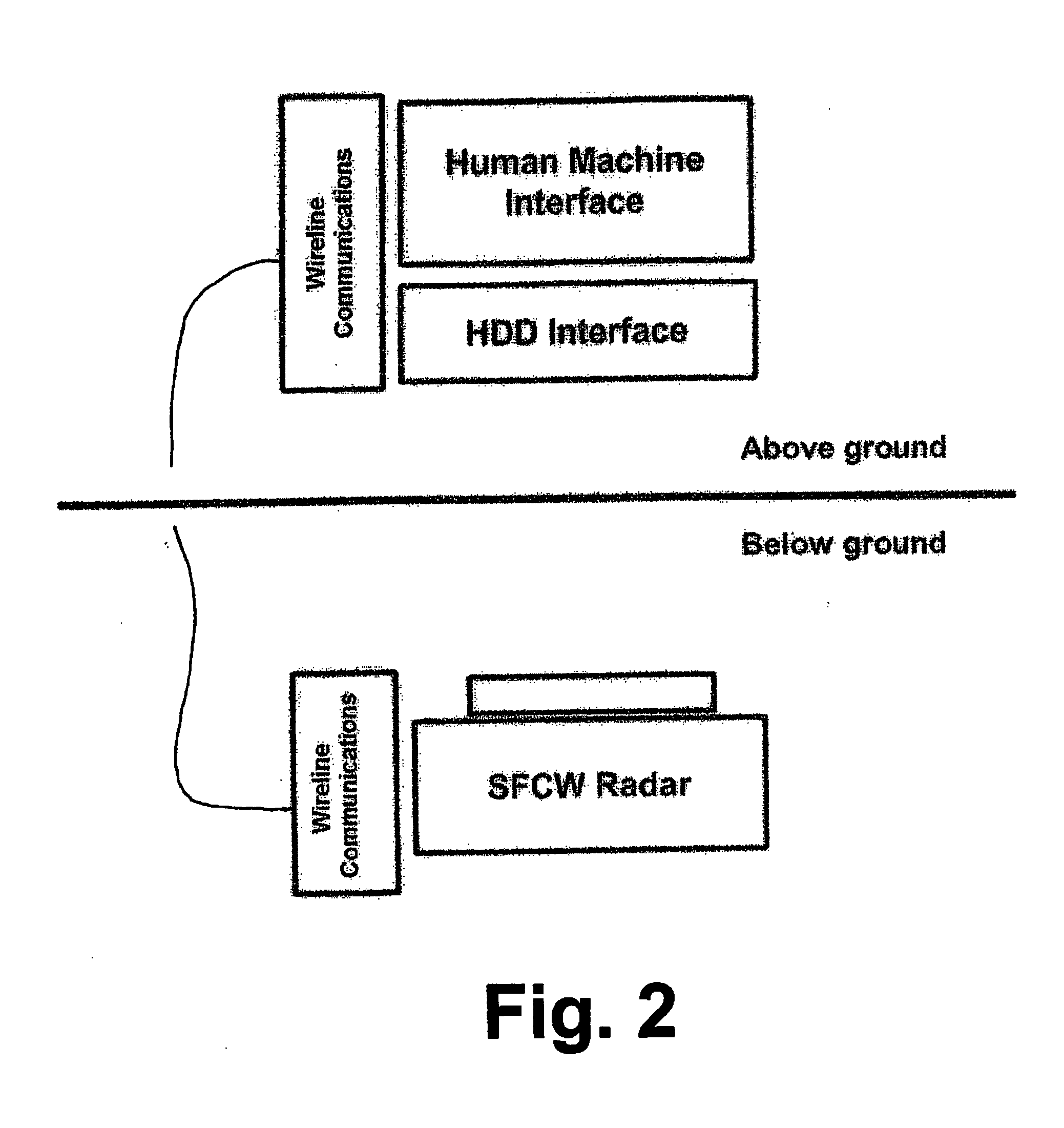Obstacle detection system for underground operations
a detection system and underground operation technology, applied in the field of electromagnetic sensing devices, can solve the problems of significant repair and loss of service, the potential hazard of cutting existing underground utilities, and the magnitude of problems, so as to maximize the detection maximize the forward and maximize the side-looking capability or sensitivity of the sensor
- Summary
- Abstract
- Description
- Claims
- Application Information
AI Technical Summary
Benefits of technology
Problems solved by technology
Method used
Image
Examples
Embodiment Construction
FIGS. 1 and 2 show conceptual diagrams of the obstacle avoidance radar system (OAS) of this invention. The basic components of the system, shown in FIG. 2, comprise the radar technology, which is disposed in the ground, a human machine interface and an HDD interface, which are disposed above ground, a communications link connecting the radar technology with the human machine interface and HDD interface, which allows communications and power to share a single conductor, and an antenna 12 (FIG. 1). In accordance with one preferred embodiment of this invention, the communications link comprises wireline connections. However, communications between the below ground and above ground system components may also be accomplished by means of wireless transmission or other communications systems apparent to those skilled in the art.
The application shown in FIG. 1 is for directional drilling and comprises radar electronics 10 mounted in the drill head 11 of a directional drill. The radar elect...
PUM
 Login to View More
Login to View More Abstract
Description
Claims
Application Information
 Login to View More
Login to View More - R&D
- Intellectual Property
- Life Sciences
- Materials
- Tech Scout
- Unparalleled Data Quality
- Higher Quality Content
- 60% Fewer Hallucinations
Browse by: Latest US Patents, China's latest patents, Technical Efficacy Thesaurus, Application Domain, Technology Topic, Popular Technical Reports.
© 2025 PatSnap. All rights reserved.Legal|Privacy policy|Modern Slavery Act Transparency Statement|Sitemap|About US| Contact US: help@patsnap.com



